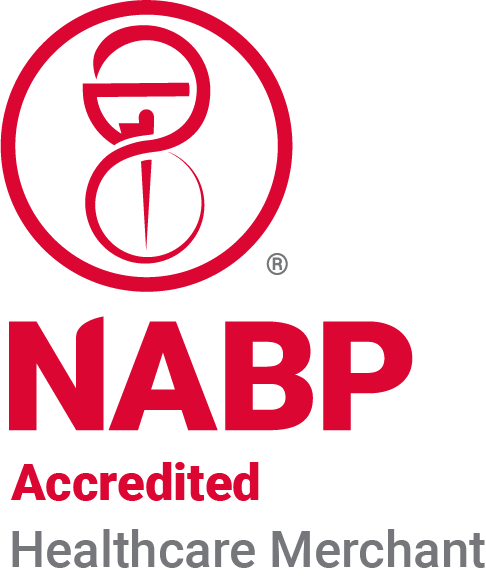Providing Quality & Trust || Clinic Website
Cisapride Tiny Tab
Wedgewood Pharmacy
Starting at $92.00
$92.00 Each
Detailed Description
CISAPRIDE: TINY TABS

Cisapride Tiny Tabs
Prescribed For: Dogs and Cats
May be Prescribed For: Constipation, Megacolon and Gastric Stasis
Cisapride may be prescribed for
- Constipation
- Megacolon
- Gastric Stasis
One of the dosage forms available for Cisapride is Tiny Tabs. A Wedgewood Pharmacy exclusive. Pilling a pet is a task most owners dread. Tiny Tabs® -- compressed, pillable tablets that are smaller than a Tic Tac® -- may make that task, and the owners’ lives, a little bit easier. They are perfect for difficult-to-administer or bitter-tasting medications.
3 strengths of Cisapride Tiny Tabs are available, ranging from 2.5 mg/tab to 10 mg/tab.
Basic Information
Cisapride is a third-generation benzamide that is used in human and veterinary medicine as a motility-enhancement drug. Motility disorders of the gastrointestinal (GI) tract are a common clinical problem in companion animals. Post-operative ileus is a common and particularly difficult complication seen after abdominal surgery in horses. Cisapride once was used as a motility enhancement drug in human medicine but it is no longer manufactured or used for this purpose.
Cisapride activates acetylcholine release from the mesenteric plexus, which in turn stimulates GI smooth-muscle. Cisapride is a serotonergic agonist. Cisapride can show activity on the smooth muscle throughout the GI tract. Anatomic differences between species can affect clinical efficacy. For example, cisapride is not used generally to manage megaesophagus in dogs because they lack smooth muscle in the esophagus. Like cisapride, metoclopramide and domperidone also are drugs in the benzamide class. Cisapride does not increase gastric acid secretion.
Dogs and Cats
Cisapride has been used widely to treat gastric-emptying disorders, intestinal transit and other motility disorders in both dogs and cats. It accelerates emptying the stomach and propulsion of food through the intestines by increasing peristalsis. Cisapride is used in cats to manage chronic constipation and megacolon.
Work in humans has shown that cisapride is better absorbed when given with food. In small-animal practice it usually is recommended that cisapride be given orally 15 minutes before feeding.
Horses
Post-operative ileus (POI) is a common and serious complication in horses that have had abdominal surgery, particularly surgery of the small intestine. Several clinical trials in the early 1990s supported the use of cisapride to treat POI in the horse but more recent work done in vitro demonstrated some receptor differences in the horse jejunum. Possible species differences and the variable results of different research-models indicate a need for more research. Because POI may be caused by multiple factors (endotoxemia, distension, inflammation) it is possible that the response to prokinetic agents such as cisapride may be influenced by these different underlying causes. At this time the effect of cisapride on gastrointestinal motility in the horse remains unclear and there does not appear to be a consensus of opinion regarding the use of prokinetic agents in the prevention of POI. Cisapride absorption in the horse has been investigated when given orally, intravenously, intra-muscularly and rectally. Absorption after rectal administration is negligible.
Cisapride Side Effects
GI symptoms including abdominal pain and diarrhea are common.
Precautions
- Prokinetic drugs such as cisapride should not be used when increased GI motility may be harmful (mechanical obstruction, impaction, potential perforation or GI hemorrhage).
- The dose of cisapride should be reduced in animals with decreased liver function. Elimination of cisapride is not significantly influenced by decreased renal function.
- Animals with cardiac arrhythmia or conduction disorders may require additional monitoring.
- High doses of cisapride were found to decrease fertility and to increase embryonic losses in laboratory animals. Cisapride is excreted in milk. It should be used during pregnancy or lactation only when the benefits clearly outweigh the risks.
Drug Interactions
- Prokinetic drugs such as cisapride increase gastric motility and speed GI transit. This may affect the absorption of other oral medications.
- Cisapride should not be used with ketoconazole, itraconazole, IV miconazole, or troleandomycin, erythromycin, fluconazole and clarithromycin. These combinations may result in potentially fatal ventricular arrhythmias.
- Cisapride may increase the rate of absorption of the histamine H2-antagonists, cimetidine and ranitidine.
- Cimetidine may increase the absorption of cisapride.
- Cisapride may increase the effect of anticoagulants. Additional monitoring of clotting times and dose adjustments may be necessary.
- Cisapride may increase sedation when used with benzodiazepine tranquilizers or alcohol.
Overdose
There is a wide margin of safety with cisapride. Extremely high doses can potentially cause GI distress, difficulty breathing and CNS signs. Oral overdose of Cisapride should be handled using standard GI emptying procedures, activated charcoal and supportive care. Cardiac monitoring for arrhythmia is suggested.

Powered by nopCommerce
This site is running in live payment mode. Real payments will be processed.

